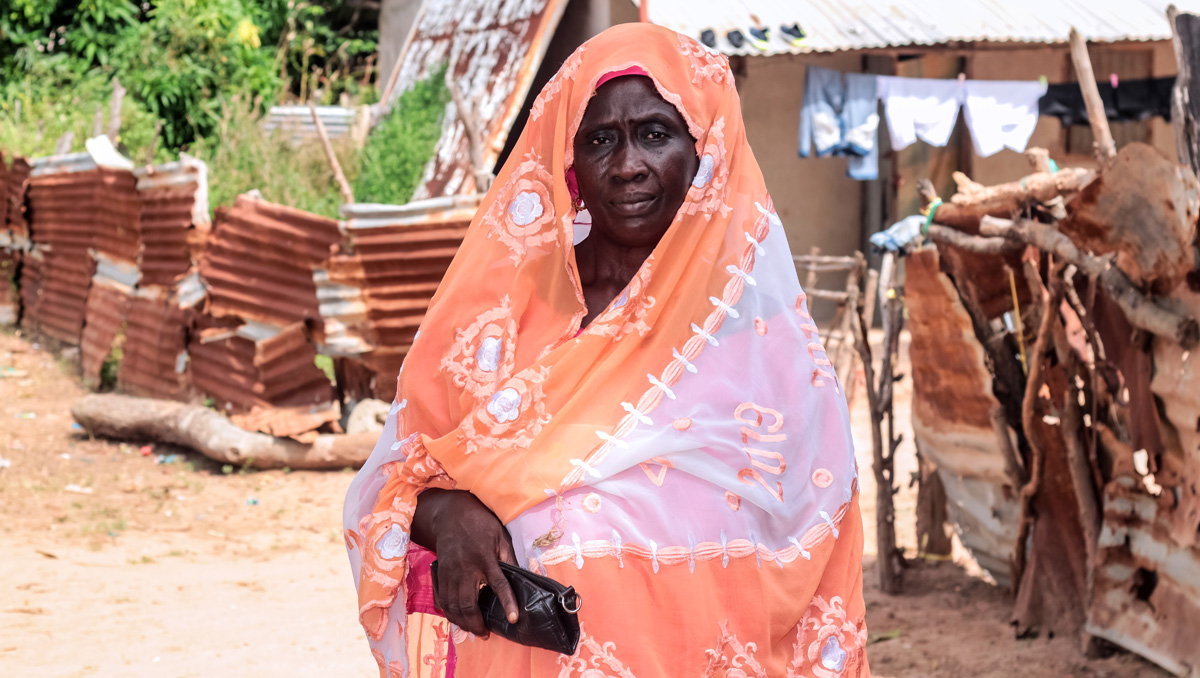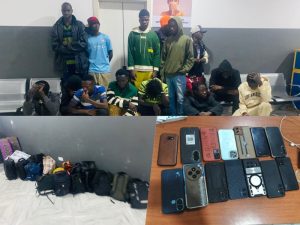Gambiaj.com – (BANJUL) – Jarra Dibba, a widow in her late fifties from Kwinella, Lower River Region of The Gambia, vividly recalls the moment she received 4,000 dalasi (about US$100) from the International Fund for Agricultural Development (IFAD)’s Rural Poor Stimulus Facility (RPSF). “The first thought that came to my mind was how I could get the best use out of it,” she says.
Jarra, the breadwinner for a family of nine, decided to invest half of the sum to start a small business. She purchased a bag of rice and a gallon of palm oil for resale, bought fish and vegetables to sell at home, and used some for schoolbooks. With an old icebox as her display, she set up a small table at her compound’s gate, launching her business successfully and alleviating the struggle to feed her family.
The RPSF, initiated in early 2020 amidst the COVID-19 pandemic, aimed to improve rural resilience worldwide. In The Gambia, the RPSF support was channeled through the ROOTS project, assisting vulnerable households like Jarra’s.
Muhammad Sengura from Tambasansang village, Upper River Region, used his RPSF grant for family food and land-clearing services. Recipients report using the money for food, education, and debts, while some invested in businesses like fish smoking or market trading.
The RPSF also provided poultry farmers with vaccines, feed, and medicines, aiding 665 farmers when border closures disrupted supplies. Thirty rural youths received training and start-up grants for small and medium enterprises.
Amie Ndongo, a 23-year-old entrepreneur from Kuntaur, completed a digital marketing course through  ROOTS and received a start-up grant. She invested in rice production, thrift-flipping, and buying and reselling chicken legs, achieving success by advertising on social media.
ROOTS and received a start-up grant. She invested in rice production, thrift-flipping, and buying and reselling chicken legs, achieving success by advertising on social media.
Similarly, Ismaila Njie, a 26-year-old teacher, used the funds to start a food-processing business, buying necessary materials and marketing online. His profits have increased, especially from producing dukula, a nutritious cereal.
For Jarra and many others, the RPSF payment was a lifeline, ensuring food security, education, and laying the foundation for sustainable livelihoods, even amid the economic downturn of COVID-19. Through targeted support, these farmers and entrepreneurs have not just survived but thrived, showcasing the resilience and entrepreneurial spirit of The Gambia’s rural communities.










